The ABC List Of The Healthiest Vegetables: P for Peppers, Pumpkin, Purslane, Parsnips. Today’s post of the ABC’s Of Healthiest Vegetables, also known as the Healthiest Foods On Earth: Vegetable Series Beginning With The Letter P is all about PARSNIPS, PEPPERS, PUMPKIN, AND PURSLANE. PARSNIPS are full of nutrition. They are a member of the umbelliferous vegetable group that has cancer protective properties. PEPPERS – the riper the sweet pepper, the greater its nutrition and the more vitamins. Hot peppers contain Capsaicin, an active ingredient in pain relieving creams. PUMPKINS are loaded with potassium which are needed in your muscles. A recent study also shows the more potassium consumed, the lower your risk of a stroke. PURSLANE contains Omega 3 fatty acids which are inflammatory, heart health fats. But keep reading as there’s even more …
In this 150 Healthiest Foods on Earth Series, I’ll be featuring vegetables that are packed with nutrients, vitamins and antioxidants – all of which are great for your health. Based off the book by Jonny Bowden, these featured vegetables are a recipe for healthy living that hopefully everyone will take to heart like I have. You’ll be amazed at how eating the right foods is just like having a pharmacy in your fridge and pantry.
If you missed any of the previous vegetables, read up on them here at the ABC LIST OF THE HEALTHIEST FOODS. Enjoy
PARSNIPS
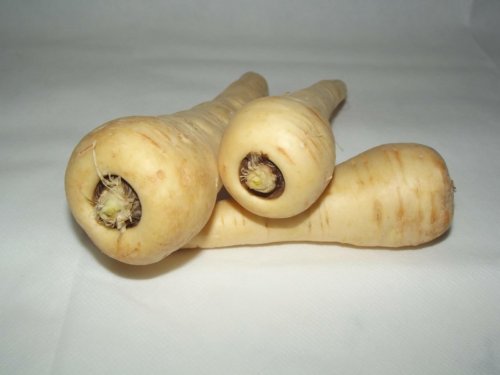 Parsnips are full of nutrition. Its a member of the umbelliferous vegetable group that has cancer protective properties. They contain phthalides, which stimulate beneficial enzymes and inhibit inflammatory ones. They also have polyacetylenes that help protect against carcinogens. 1 cup cooked contains 5.5 g of fiber, 58 mg of calcium, 45 mg of magnesium, 90 mcg of folate and 573 mg of potassium, and is only 100 calories.
Parsnips are full of nutrition. Its a member of the umbelliferous vegetable group that has cancer protective properties. They contain phthalides, which stimulate beneficial enzymes and inhibit inflammatory ones. They also have polyacetylenes that help protect against carcinogens. 1 cup cooked contains 5.5 g of fiber, 58 mg of calcium, 45 mg of magnesium, 90 mcg of folate and 573 mg of potassium, and is only 100 calories.
HOT PEPPERS
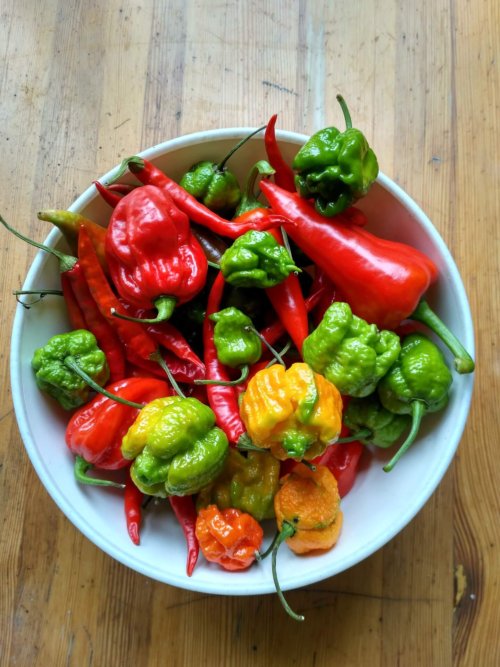 Wow – look at all these beautiful bright colors !!
Wow – look at all these beautiful bright colors !!
Hot peppers contain capsaicin, nutrients like beta-carotene, carotenoids like lutein and zaexanthin, Vitamins C & A, fiber, potasium, folic acid and iron. Capsaicin produces a feeling of warmth when applied to the skin, and therefore is an active ingredient in pain relieving creams. Its also a vasodilator, which enhances circulation and increases body temperature. Studies show that it promotes energy metabolism and suppressed body fat accumulation. Studies also show that hot peppers may help prevent ulcers by killing bacteria. Not recommended by those who have inflamed colon’s.
PEPPERS (SWEET)
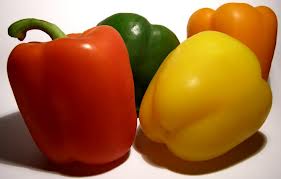
The riper the pepper, the greater its nutrition. Thin skinned peppers are more peppery, while thicker skinned ones are sweeter. Sweet peppers contain lots of vitamin C & A, potassium, vit K (good for bone health), contain lycopene which has been shown to be associated with lower risk of prostate cancer. Red peppers contain beta-cryptoxanthin, a carotenoid that may lower the risk of developing lung cancer.
PUMPKIN
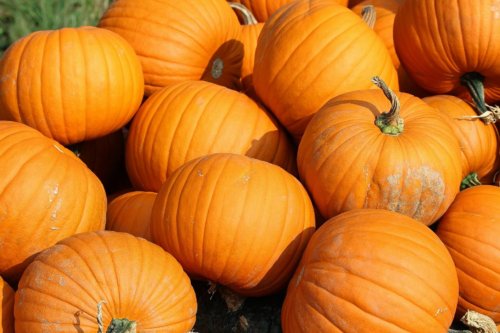 1 cup of pumpkin contains only 49 calories, and a whopping 564 mg of potassium. A recent study shows the more potassium consumed, the lower your risk of a stroke. You need potassium in your muscles, especially those who exercise in excess and sweat a lot. Eating pumpkins also helps prevent muscle cramps.
1 cup of pumpkin contains only 49 calories, and a whopping 564 mg of potassium. A recent study shows the more potassium consumed, the lower your risk of a stroke. You need potassium in your muscles, especially those who exercise in excess and sweat a lot. Eating pumpkins also helps prevent muscle cramps.
1 cup of mashed pumpkin contains 5000mcg of beta carotene, 853 of alpha carotene, 3500 mcg of beta cryptoxanthin, a member of the carotenoid family that seems to reduce the risk of lung and colon cancer. Studies have shown a decrease in risk of rheumatoid arthritis. Contains 2400 mcg of lutein and zeaxanthin (eye health). Also has 12,000 IU’s of vit A, plus calcium, iron, magnesium, phosphorus, and 2.5g of fiber.
So instead of just digging out the insides and tossing them in the garbage at Halloween, incorporate this bright orange veggie into your meal.
PURSLANE
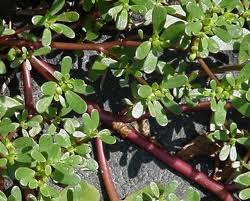 Purslane contains omega-3. 1 cup of of fresh purslane leaves contains 300-400 mg of alpha-linolenic acid (the same found in flaxseed). Omega 3 fatty acids are inflammatory, heart health fats that have been found beneficial in hypertension, type 2 diabetes, coronary heart disease, and depression. 1 cup also contains 90 mg of calcium, 561 mg of potassium, 2,000 IU’s of vitamin A. The purslane has a mild, sweet and sour flavor and are very chewy.
Purslane contains omega-3. 1 cup of of fresh purslane leaves contains 300-400 mg of alpha-linolenic acid (the same found in flaxseed). Omega 3 fatty acids are inflammatory, heart health fats that have been found beneficial in hypertension, type 2 diabetes, coronary heart disease, and depression. 1 cup also contains 90 mg of calcium, 561 mg of potassium, 2,000 IU’s of vitamin A. The purslane has a mild, sweet and sour flavor and are very chewy.
Next time you’re in the garden and begin pulling and tossing this invasive weed – cook with it. Sounds like a plan to me. Bon Appetit 🙂

